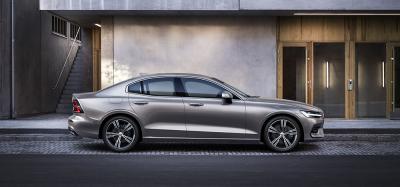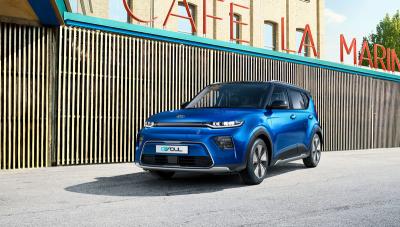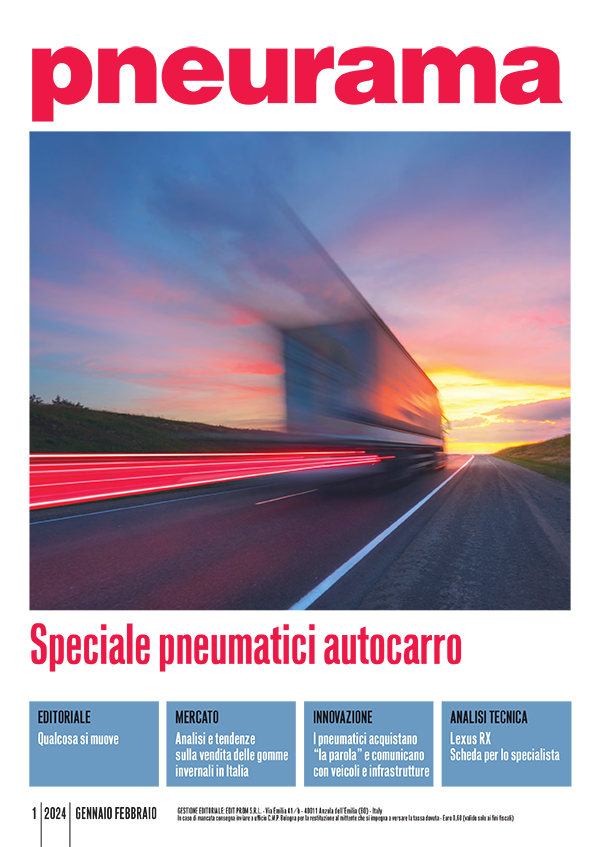The class B automotive segment is clearly the most interesting in terms of sales volumes, making up over 40% of car sales (Italian sales figures for the first 6 months of 2016)! Looking at the turnover, it is clear to see why designers are pushing hard in search for an ever greater appeal to this segment. The result is that nowadays class B vehicles boast solutions and equipment that were unthinkable on cars dedicated for everyday use just a few years ago, because, if it is true that station wagons and SUVs meet the needs of an entire household, a city car is now a standard presence as a second car , if not a family’s main means of transportation.
Downsizing without compromising on performance; despite small displacements, in line with the current needs of many motorists, modern city cars deliver gritty performance without losing sight of important requirements such as fuel efficiency and sustainability. And here is where Opel’s Karl comes into the picture, winking at currently growing social trends and infotainment, especially important if young motorists are a target market. Opel holds a leading role in this section of the market, being able to field also models like Adam and Corsa, ready to satisfy every need in terms of short- and medium-range mobility.
Maximum connection
Small yet roomy, Opel’s Karl manages to comfortably sit five passengers in just 3,68 metres, a more than adequate 2,38-metre wheelbase with short overhangs.A personal and attractive design, despite clear stylish links with Adam and Corsa – just take a look at the front grille and the shape of the side panels – with a wide glass area which benefits interior brightness and that can be increased thanks to a power sunroof, on request. Inside there is enough room for five with large glove compartments and storage space in the door compartments large enough to hold whole bottles, and a 206-litre rear compartment for luggage made possible thanks to the absence of a spare wheel (on request), expandable to 1,013 folding, even separately, the rear seat. No shortage of accessories, such as cruise control, heated seats and steering wheel, quite comfy in winter, or parking assist system, with a warning alarm when approaching obstacles.
Life is a click away. And we are not just referring to the compulsive use of smartphones and social networks, as to the possibility of accessing timely and vital emergency intervention in case of extreme necessity. The heart of the system, a real treat for cars of this class, is in the advanced new generation IntelliLink infotainment functions, with Opel OnStar connectivity. In short, both drivers and passengers are able to access roadside assistance and other services through an operator, anywhere in Europe, 365 days a year. And that is not all, if even just one of the six airbags is activated, perhaps as a result of an impact, the service center is automatically alerted, and will immediately send an assistance vehicle. Very useful in case of an accident, especially if one is unable to use a phone. Opel OnStar also has a wi-fi hotspot 4G LTE, which provides internet access for up to seven electronic devices, and each passenger is only a fingertip away from the web.
The bi-fuel option
The engine choice for this vehicle class often favours petrol, and with good reason, a petrol car costs less than a diesel counterpart and is friendlier, environmentally speaking, than a diesel engine, more suitable for larger engines and when torque is needed. The little German city car, though, provides for just one option; a modern 999 cc. three-cylinder petrol engine, All-aluminum, naturally aspirated version of the turbocharged engine found on the Corsa and Adam, and capable of delivering a maximum power of 75 hp, certainly not exuberant but enough to push a 939 kg car up to 170 km/h, with a rather modest acceleration – 0-100 km/h in just under 14 seconds - but still able to guarantee a sufficiently elastic pickup thanks to its manual five-speed transmission. Fuel consumption is particularly appreciated, scoring 23 km on average per litre, with harmful emissions limited to 99 g/km of CO2 in combined cycle, not to be overlooked when choosing a car of this kind. And in case this does not seem convenient enough, there is also an LPG bi-fuel version, with just 2 hp less compared to the petrol version, but able to guarantee a combined mileage of 1000 km, reducing fuel costs quite considerably since liquefied petroleum gas comes at a little more than 50 cents per litre.
In terms of passive safety, in addition to the six airbags already mentioned, the Karl can also boast a pedal release system, preventing damage to the driver’s legs in case of an impact, although the car’s active electronic equipment is ready to intervene in order to avoid accidents in the first place. ABS system, which includes a TC Plus traction control, ESP Plus stability control, Lane Departure Warning and Hill Start Assist are all ready to assist the driver in reducing potential dangers. The electrically assisted steering has a City Mode function facilitating frequent and tight maneuvers, while cornering lights contribute to safe driving at night by pointing the fog light towards the driving line.
All this associated to a simple yet effective design, that having to support a very limited mass, can do without a front stabilizer bar enhancing driving comfort. Independent front wheel suspensions coupled to a rear semi-rigid bridge, with a V-tubular cross member positioned in front of the wheels and dampers at the back for the best possible geometric efficiency even at full load.
Road handling proves to be more than adequate, even though the small 165/65 R14 might appear to be too modest (it is quite rare now to find such small tires, though functional for energy efficiency), while the 185/55 R15, on steel rims or alloy wheels and the top of the range 195/45 R16 mounted on alloy wheels guarantee superior grip and handling. On request, clients might receive an ecoFlex package, which, in addition to front and rear spoilers improving the Karl’s aerodynamics, provides for specific tires with reduced rolling resistance.

The large grille and contoured headlamps create an overall design that shows exceptional attention to details, in common with the entire Opel range

The front and rear tire set up do not provide for huge sizes, with tires ranging between 14, 15 and 16 inches, with an eye on fuel efficiency, with low-rolling resistance tires provided as an option

The extremely short overhangs and 2,38-metre long wheelbase gives the German city car enough space for five passengers and 206 liters of useful capacity in the luggage compartment, expandable to 1,013 liters when the rear seat are folded








